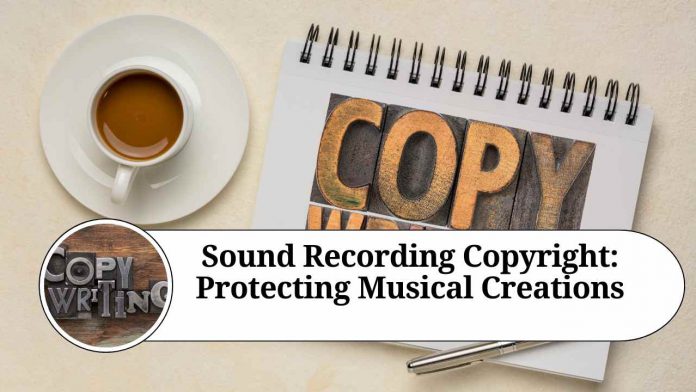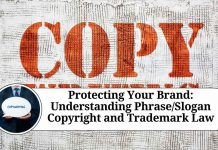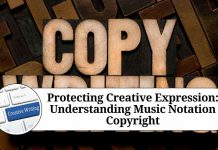Introduction
In the digital age, where music is easily accessible and widely shared, protecting the rights of musicians and their sound recordings has become increasingly important. Sound recording copyright serves as a legal framework to safeguard the creative works of artists and provides them with exclusive rights to control the use and distribution of their music. In this blog post, we will explore the concept of sound recording copyright, its significance, and the key aspects surrounding its protection.
Understanding Sound Recording Copyright:
Sound recording copyright refers to the legal protection granted to the recorded version of a musical composition. It is separate from the copyright protection given to the underlying musical work, such as the lyrics and melody. In most countries, including the United States, sound recording copyright falls under the purview of intellectual property law.
Copyright Protection and Duration:
In many jurisdictions, including the U.S., sound recording copyright is automatically granted as soon as a musical work is fixed in a tangible medium. This means that once a song is recorded onto a physical or digital format, such as a CD or an audio file, it is protected by copyright law. The duration of sound recording copyright varies from country to country but is generally quite lengthy, often extending for several decades or more after the death of the creator.
Exclusive Rights of Copyright Holders:
Copyright holders of sound recordings are granted exclusive rights, which include the right to:
- Reproduce the sound recording: This entails making copies of the recording, whether in physical or digital form.
- Distribute the sound recording: Copyright holders have the right to control the sale, rental, or distribution of copies of their sound recordings.
- Perform the sound recording publicly: This encompasses public performances of the recorded music, including broadcasting, streaming, or playing it in public venues.
- Create derivative works: Copyright holders can authorize or prohibit the creation of remixes, samples, or other adaptations based on their original sound recording.
Importance of Sound Recording Copyright:
Sound recording copyright is crucial for several reasons:
- Encouraging creativity and innovation: By providing legal protection, copyright incentivizes artists to create and invest in the production of new music. It fosters a vibrant and diverse music industry, benefiting both creators and consumers.
- Economic value: Copyright protection allows musicians and record labels to control and monetize their recordings. It enables them to negotiate licensing deals, sell physical copies or digital downloads, and generate revenue from streaming services.
- Preservation of artistic integrity: Copyright gives artists control over how their music is used and ensures that their works are not altered or misrepresented without permission. It allows creators to protect their artistic vision and maintain the integrity of their sound recordings.
Enforcing Sound Recording Copyright:
Enforcing sound recording copyright can be a complex process, particularly in the digital era. Online piracy, unauthorized sharing, and illegal downloads pose significant challenges to copyright holders. However, various measures can be taken to protect sound recordings, such as:
- Registering copyright: While copyright is automatically granted, registering sound recordings with the relevant copyright office provides additional evidence of ownership and can be beneficial in legal disputes.
- Licensing agreements: Artists and record labels can enter into licensing agreements with music streaming platforms, broadcasters, and other entities to ensure proper compensation for the use of their recordings.
- Digital rights management (DRM): Employing DRM technologies can help prevent unauthorized copying or distribution of sound recordings. These technologies can restrict access to copyrighted content and track its usage.
- Anti-piracy efforts: Collaborating with anti-piracy organizations and actively monitoring online platforms for infringing content can help detect and combat copyright infringement.
Conclusion
Sound recording copyright plays a pivotal role in protecting the creative works of musicians and ensuring they have control over the use and distribution of their recordings.
Other Related Blogs: Section 144B Income Tax Act
Frequently Asked Questions (FAQs)
Q. What is sound recording copyright?
Sound recording copyright refers to the legal protection granted to the recorded version of a musical composition. It grants exclusive rights to the copyright holder to control the use, reproduction, distribution, and public performance of the sound recording.
Q. How is sound recording copyright different from song copyright?
Sound recording copyright protects the specific recorded version of a musical composition, while song copyright (also known as the musical work copyright) protects the underlying composition, including the lyrics and melody. They are separate rights that can be owned by different individuals or entities.
Q. Do I need to register my sound recordings to be protected by copyright?
In most countries, including the United States, sound recordings are automatically protected by copyright as soon as they are fixed in a tangible medium. Registration is not required for copyright protection, but it can provide additional benefits, such as establishing a public record of ownership and facilitating legal proceedings.
Q. How long does sound recording copyright last?
The duration of sound recording copyright varies depending on the country. In the United States, for example, copyright protection for sound recordings created by an individual typically lasts for 70 years after the death of the last surviving author. If the sound recording is a work made for hire or published before 1978, the term may be different. It’s important to consult the copyright laws of your specific jurisdiction for precise information.
Q. Can I use a sound recording without permission if it’s for personal use?
The concept of fair use or fair dealing in copyright law may allow limited use of copyrighted materials without permission in certain situations, such as for personal, educational, or research purposes. However, the specific conditions and limitations of fair use vary across jurisdictions. It is advisable to consult the copyright laws of your country or seek legal advice to understand the scope of fair use in your situation.
Q. How can I protect my sound recordings from unauthorized use?
To protect your sound recordings, consider the following steps:
Clearly mark your sound recordings with copyright notices (e.g., “Copyright [Year] [Copyright Owner]”)
Register your sound recordings with the relevant copyright office, if applicable in your jurisdiction.
Use licensing agreements to control the use and distribution of your recordings.
Employ digital rights management (DRM) technologies to restrict unauthorized copying or distribution.
Monitor online platforms for infringing content and take appropriate action, such as issuing takedown notices.
Q. Can I sample or remix copyrighted sound recordings?
Sampling or remixing copyrighted sound recordings generally requires permission from the copyright holder. This often involves obtaining a license and may involve negotiation and payment of royalties or fees. Some jurisdictions have specific rules and limitations for sampling, but it’s advisable to seek legal counsel or consult the copyright laws of your country for guidance.
Q. What can I do if someone infringes on my sound recording copyright?
If you believe your sound recording copyright has been infringed, you may take legal action to enforce your rights. This may involve sending a cease and desist letter, filing a lawsuit, or seeking alternative dispute resolution methods. Consulting with an intellectual property attorney who specializes in copyright law can provide you with guidance and help you navigate the legal process.




















